0. Real Chooken Keeping
1. Somewhere To Park The Henhouse
2. Care and Feeding
3. Eggs and All That Jazz
So, in the sudden world-wide shortage of eggs you went and panic-bought chickens?
Congratulations on joining the ranks of chooken owners the world over!

What next? Now that you've added these lovely feathered ladies to your flock, what next? Roll around (metaphorically) in all the eggs that you're going to be swimming in? Toss them a handful of food and scraps? Sunny skies and endless rooster booster?
I hate to be the bloody unhatched chick in your morning omelette, but...you've just taken on the care and life of another living creature. Like adding another member of the family, whether baby human, four-footed, or other fauna, you have taken on the responsibility for another living being. The chickens you have acquired will give you eggs, yes, but you have a responsibility to these lives that you've taken into your household and given your protection. As the adult human with brains and logic and presumably empathy, you have resources to think and consider and plan ahead as the small human and the furry pets and the feathered friends do not.

Chicken-keeping is fun, delightful, rewarding, and enjoyable.
But it is not 'easy'. It's not as 'easy' as getting in your car, going to the supermarket or greengrocer, and pulling a dozen eggs off the supermarket shelf and coming home with them. Clean, sterile eggs, with no poop or blood smears on them. Eggs that you didn't have to fish out from under a broody hen, or in between the cracked shells of eggs that weren't hard enough to keep together when an errant hen stepped on them. From chickens who you didn't have to watch to check that they don't have any infections, worms, broken eggs in their uvula, infected scratches, calcium or vitamin deficiencies, and were getting enough good food to produce solid eggs.
Those sites that told you that chicken-keeping is easy? Well, they were half-right.
Is it easier than full-scale agricultural farming? Yes.
Easier than keeping pigs, cows, goats, geese, ducks, or any other farm animals? Yes.
Easier than backyard semi-sufficiency? Yes.
But it's not 'easy'.
If you're not already, say, an organic gardener dedicated to composting your scraps in worm farms and compost piles, with an eye to how much plastic you use, and the ups and downs of the intersection of politics and environment, then I suspect that whoever told you it was 'easy' has a definition that does not look like your version of 'easy'.
And anyone who tells you otherwise is trying to sell you something.
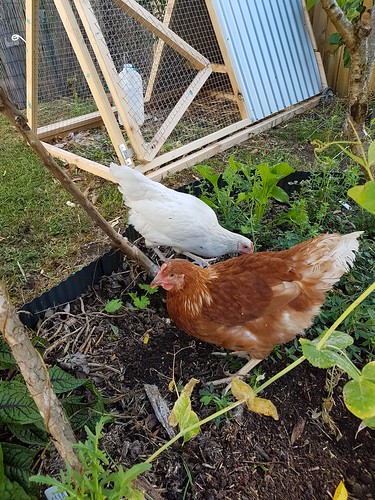
I am not trying to sell you something. I'm thinking of all those chickens who've just been sold to suburbanites who are woefully unprepared for the newest members of their household, and are going to get a rather rude awakening in the coming months and - if they have the grit to stick it out - years.
I knew a lot more about chickens than many people seem to, and I still had a few things I wasn't prepared for.
my bonafides
I've been planning to have chickens for twenty years. Two and a half years ago, I finally had the opportunity to get two.
I bought them and their coop from Rentachook, and 'the girls' were just at point-of-lay. Since then, we've had regular eggs from the Isa Brown, and semi-regular eggs from the Leghorn. Today, they're happy, healthy girls who still regularly lay, scratch up whatever parts of my garden they can reach, eat like they've been starved since last Tuesday, and crap like it's going out of style.
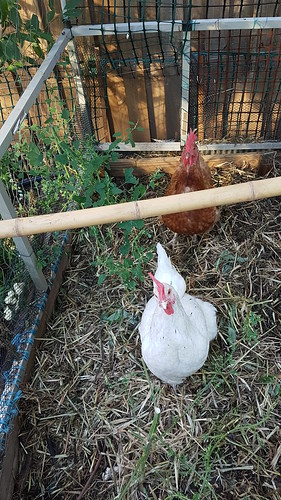
The soles of my outdoor shoes are covered with chook poop. My entire garden has been rearranged to manage their input (every green thing in the garden, and every bug that lives under the roots of every green thing in the garden) and their output (did I mention the crap?). We've wormed them, dusted them for fleas, probed them for eggs broken inside the egg canal, collected blood-stained eggs with concern, muttered over rough patches on shells caused by tract infection, exclaimed over soft shells and bought hundreds of dollars worth of calcium supplements to fix the problem, poked holes in plastic drink bottles to give them toys to play with, locked broody hens out of the laying boxes, and built whole chook runs for them to scratch around in.
Has it been fun? Satisfying? Rewarding? Yes. Absolutely yes.
Do we get eggs? Yes. Sometimes. Most of the time.
Do we get more out of the chickens than we put in? *waggles hand* Questionable on an economic rationalist mentality. Fun and enjoyment don't feature into late-stage capitalism, only the satisfaction of ownership, value-added, and productivity. So maybe the care and maintenance of living creatures shouldn't be measured in economic rationalist terms: inputs vs outputs.
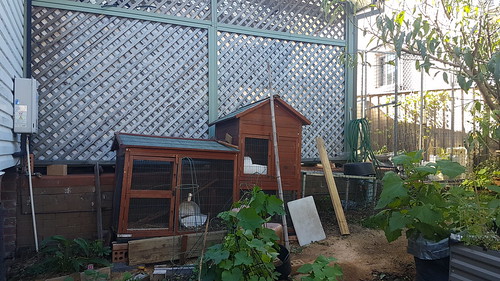
What you will get out of keeping chickens is a new appreciation for agriculture and farming, a lesson in the cycles of life, an education in the complexities of nature, as well as an appreciation of exactly what it takes to produce the volume of eggs that our society consumes. (Let's not even go near the amount of chicken meat that our society consumes; that maintenance, keep, and upkeep is a whole other level of complicated.) You will get several members of the household who telegraph their every thought because they don't actually have that much brain in their head, but who will also recognise you and greet you with delight and interest (mostly because when you turn up, so does the food - Pavlov's dogs have nothing on chooks).
I'm no breeder, and I've only been doing this for a couple of years, but my chooks are happy and healthy - such that when my sister took them for checkups, the vet was very pleased with how happy and inquisitive they were. Which tells me that she probably sees a lot of chooks who aren't doing so well. Some of that is because chickens are very susceptible all kinds of infestations (worms, lice, fleas) and illnesses. And some of that is just because people got chickens for the eggs and didn't think about the rest of the bird, too.
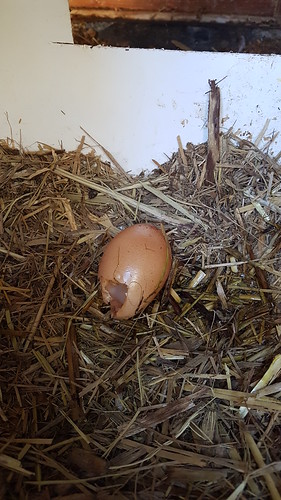
Ultimately I am not here to tell you not to get chooks, or to chastise you for not thinking about your decision to get chooks. Okay, maybe I'm going to be a bit hard on you if you didn't think this 'get chickens, yay eggs' thing through.
But. BUT. BUT.
I am willing to lead you down the path of Real Chooken Keeping from someone who lives in the Sydney suburbs and has been keeping chooks for long enough to have learned a few things, but short enough that she remembers the early days of learning.
So, if you've read this far, then either you're a sucker for my writing or you're really interested in being better informed about looking after the new feathered members of your household. I'm hoping it's both, but I'll take 'wanting to be better informed'.
This series is going to be at least three posts made this week, focusing on three aspects of chicken keeping:
One. "we all need our own place to live, not just somewhere to park the henhouse"
Two. "care and feeding of your chooken"
Three. "eggs, and all that jazz"
There may be an FAQ. And an exam. (Okay, I'm kidding about the exam. Your 'exam' will be the life of your chickens; and that'll be something else you'll have to deal with.)
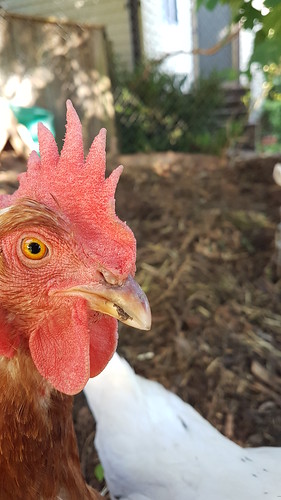
If you're interested in my entries on suburban chicken keeping, then the chooks label (tag) will give you my wisdom over the last couple of years of chicken keeping, as well as how my methods have changed. That said, although the methods of keeping them have changed, my perspective hasn't; from day dot, these animals were going to be a part of our household, and I'd factored that into their keep and upkeep. And it's kind of fun to go back and see where I started and where we are now.
For those of you willing to do your own research, I'm putting in an entirely separate post on my personal chicken-keeping resources - the ones I start with when I have a question to hand.
